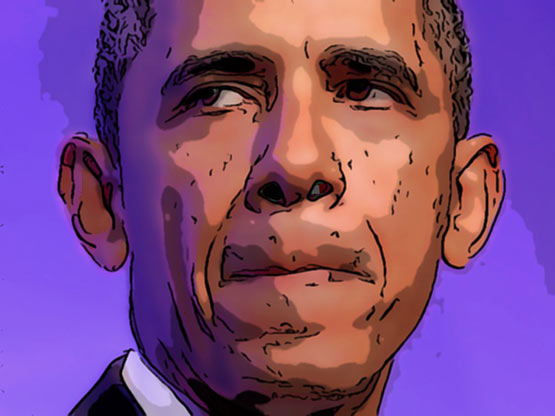
Arriving in Hangzhou on Saturday, President Obama received an unexpected welcome. Absent were both rolling staircase and television coverage. Instead, the president was compelled to disembark ignominiously through a high-security door in the belly of the plane.
New York Times reporter Mark Landler mused that in his six years covering the White House he had never witnessed the president shut off from the media.
And that was only the beginning. Both reporters and staffers -- including National Security Advisor Susan Rice and her deputy -- found their way blocked by bright-blue police tape. When Ms. Rice tried to duck under the tape, Chinese officials swiftly intercepted her. When White House staff members protested the radical departure from protocol, their objections were met by angry shouts from the Chinese.
Some saw in this a reprise of Mr. Obama's first visit to China in 2009, when the Chinese censored coverage of the president's town hall meeting and an interview with the non-government press. Maybe the administration's much-heralded pivot-to-Asia swung too far and came around full-circle.
Or it may be yet another case of karma, which chooses its targets without political bias.
WHAT GOES AROUND KEEPS COMING AROUND
Last March, Politico Magazine's senior media writer Jack Shafer gagged over the president's appearance to award the Toner Prize for Excellence in Political Reporting. Citing the administration's new record for denying Freedom of Information Act requests and the president's talent for "limiting, shaping and manipulating media coverage of himself and his White House," Mr. Shafer fumed at Syracuse University for providing Mr. Obama a forum to pontificate about journalistic responsibility.
He's not the only one who may feel that way. Only a few months earlier, USA Today Washington Bureau Chief Susan Page condemned the White House as "more restrictive" and "more dangerous" to the press than any other in history, taking up an unusual alliance with Fox News in defense of correspondent James Rosen, named by the administration as a possible "co-conspirator" in violation of the Espionage Act.
There's a lot more, but this is enough to make anyone marvel at the darkness engulfing the "most transparent" administration in history. At the same time, last weekend's unanticipated obstructionism by the Chinese does offer a sense of hope that the scales of divine justice ultimately balance through the workings of providence. The same president who has sought relentlessly to manipulate the media now finds himself outflanked by far more adept practitioners in the art of media manipulation.
Of course, it's doubtful whether the president himself sees things that way. He tends to dismiss anything that challenges his worldview or his self-image.
THE FACE IN THE MIRROR
But it's worth revisiting -- even re-revisiting -- the devastating societal cost of hypocrisy at the highest levels.
In the perennial debate over character versus competence, we have forgotten that the two are ultimately inseparable. By quantifying the success of our public officials in terms of growth and price indices, unemployment, and trade deficits, we make two critical errors. The first is that executive and congressional actions take years to make their effects known, and that they are subject to myriad, often unrecognized, variables. A leader's short-term success or failure may in fact have little to do with his policies.
More important, the corrosive effects of dishonesty and corruption are much harder to measure. As we witness unprecedented levels of deceit and incivility from our presidential candidates, enabled by breathtaking journalistic prejudice and irresponsibility, there's no denying that an abandonment of character as an essential value has brought us to a place where feelings matter more than facts and ideology guides us more than ideals.
Of course, there really is nothing new under the sun. Nearly 3000 years ago, King Solomon observed that the words of a quarreler are his own defense, yet they penetrate to the very core.
With rationalization and self-justification so deeply rooted in our national way of thinking, and with the blight of partisanship and identity politics so pervasive in our national culture, there is little intelligent debate or informed decision-making, no room for dissent within enclaves, and no hope for any meeting of minds among adversaries. We have created an embattled society so fractured that its dissolution seems inevitable.
So what can we do about it? Well, we could give up hope. We could dig in our feet and trumpet our right to claim we are right.
Or we can take a stand against the noise, against the naysayers, against the self-serving satraps of strife. We can take up the fight to resurrect the noble principles on which America was built by demanding a return to civil discourse and restoring character as the foundational principle of civil society.
Rabbi Yonason Goldson is a professional speaker and trainer. Drawing upon his experiences as a hitchhiker, circumnavigator, newspaper columnist, high school teacher, and talmudic scholar, he teaches practical strategies for enhancing communication, ethical conduct, and personal achievement. He is the author of Proverbial Beauty: Secrets for Success and Happiness from the Wisdom of the Ages is available on Amazon.
Comment by clicking here.


 Contact The Editor
Contact The Editor
 Articles By This Author
Articles By This Author
